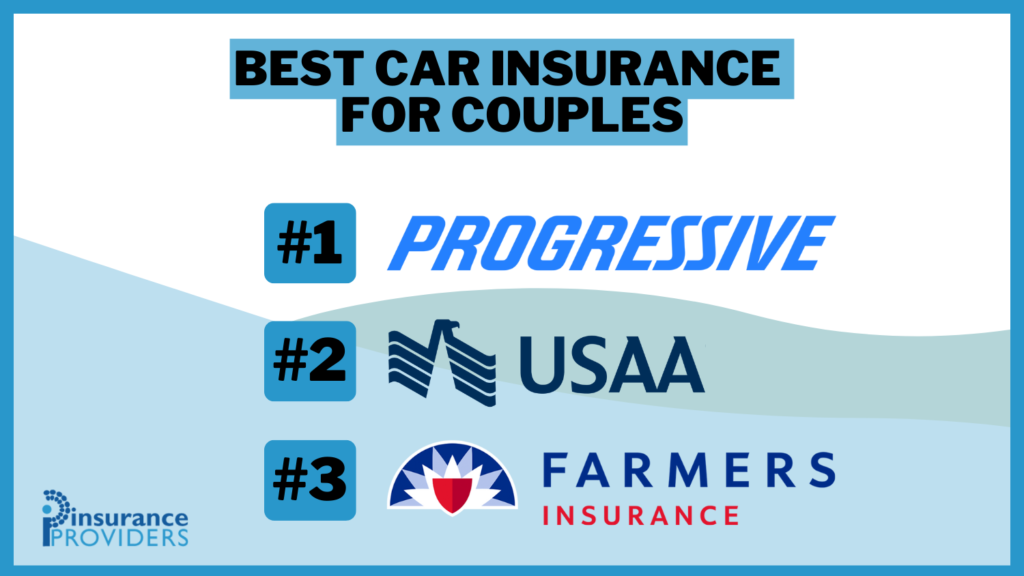Will your Auto Insurance be cancelled after an accident?
Secured with SHA-256 Encryption





Table of Contents
Table of Contents


Licensed Real Estate Agent
Angie Watts is a licensed real estate agent with Florida Executive Realty. Specializing in residential properties since 2015, Angie is a real estate writer who published a book educating homeowners on how to make the most money when they sell their homes. Her goal is to educate and empower both home buyers and sellers so they can have a stress-free shopping and/or selling process. She has studi...
Angie Watts


Licensed Insurance Broker
Zach Fagiano has been in the insurance industry for over 10 years, specializing in property and casualty and risk management consulting. He started out specializing in small businesses and moved up to large commercial real estate risks. During that time, he acquired property & casualty, life & health, and surplus lines brokers licenses. He’s now the Senior Vice President overseeing globa...
Zach Fagiano
Updated September 2023
If you have ever been involved in a car accident, you may have wondered about the consequences for your auto insurance. Will your policy be cancelled after an accident? In this article, we will explore the complex world of auto insurance policies, the impact of accidents on your rates, the process of insurance cancellation, how to protect your coverage after an accident, and alternatives if your insurance is cancelled.
Understanding Auto Insurance Policies
Before we dive into the details, let’s start by understanding what auto insurance is and the key terms you need to know in your policy.
Auto insurance is a contract between you and an insurance provider that protects you financially in case of accidents, theft, or other damages to your vehicle or property. It provides coverage for medical expenses, liability for injuries or damages to others, and repairs to your own vehicle.
When reviewing your auto insurance policy, it’s important to understand the following key terms:
- Premium: The amount you pay for your insurance coverage.
- Deductible: The amount you must pay out-of-pocket before your insurance coverage kicks in.
- Policy Limit: The maximum amount your insurance company will pay for a covered claim.
- Coverage Types: Different types of coverage in your policy, such as liability, collision, comprehensive, and uninsured/underinsured motorist.
Now that you have a basic understanding of auto insurance, let’s delve deeper into each of these key terms.
Premium
The premium is the amount you pay to your insurance provider for your auto insurance coverage. It is usually paid on a monthly or annual basis. The premium is determined by various factors, including your age, driving history, the type of vehicle you own, and the coverage options you select. Insurance companies calculate premiums based on the likelihood of you filing a claim and the potential cost of that claim.
It’s important to note that the premium is not the only cost associated with auto insurance. You may also have to pay additional fees, such as administrative fees or processing fees. These fees can vary depending on the insurance company and the specific policy.
Deductible
The deductible is the amount you must pay out-of-pocket before your insurance coverage kicks in. For example, if you have a $500 deductible and you file a claim for $2,000 in damages, you would be responsible for paying the first $500, and your insurance company would cover the remaining $1,500.
The deductible amount can vary depending on your policy and the coverage options you choose. Generally, a higher deductible will result in a lower premium, as you are taking on more financial responsibility in the event of a claim. On the other hand, a lower deductible will result in a higher premium, as the insurance company is taking on more financial risk.
Policy Limit
The policy limit is the maximum amount your insurance company will pay for a covered claim. This limit is set by your insurance policy and can vary depending on the type of coverage. For example, your liability coverage may have a different limit than your collision or comprehensive coverage.
It’s important to review your policy limits carefully to ensure you have adequate coverage in case of an accident or other covered event. If the cost of damages exceeds your policy limit, you may be responsible for paying the remaining amount out-of-pocket.
Coverage Types
Your auto insurance policy may include different types of coverage, each serving a specific purpose. Understanding these coverage types can help you determine the level of protection you have and any additional coverage you may need.
Liability Coverage: This coverage protects you financially if you are at fault in an accident and cause injury or property damage to others. It typically includes bodily injury liability and property damage liability.
Collision Coverage: Collision coverage pays for repairs to your own vehicle in case of a collision, regardless of who is at fault. It helps cover the cost of repairing or replacing your vehicle if it is damaged in an accident.
Comprehensive Coverage: Comprehensive coverage protects your vehicle against non-collision events, such as theft, vandalism, fire, or natural disasters. It covers the cost of repairs or replacement if your vehicle is damaged or stolen.
Uninsured/Underinsured Motorist Coverage: This coverage provides protection if you are involved in an accident with a driver who does not have insurance or does not have sufficient insurance to cover the damages. It helps cover your medical expenses and property damage in such situations.
By understanding the different coverage types available, you can make informed decisions about the level of protection you need for your vehicle and personal finances.
Now that you have a comprehensive understanding of auto insurance policies and the key terms involved, you can review your own policy with confidence and ensure that you have the coverage you need for peace of mind on the road.
Free Auto Insurance Comparison
Compare Quotes From Top Companies and Save
Secured with SHA-256 Encryption
The Impact of Accidents on Auto Insurance
Now that we understand the basics of auto insurance, let’s explore how accidents can affect your insurance rates and coverage.
Accidents are unfortunate events that can have a significant impact on your auto insurance. When you are involved in an accident, it not only affects you physically and emotionally but also has financial consequences. It is important to understand how accidents can influence your insurance rates and coverage.
How Accidents Affect Your Insurance Rates
Typically, when you are involved in an accident, your insurance rates are likely to increase. This increase is due to the fact that insurance providers view accidents as an increased risk. When you are involved in an accident, it indicates that you may be more prone to future accidents and may require more coverage.
The severity of the accident plays a crucial role in determining the rate increase. If the accident resulted in significant damage to your vehicle or caused injuries to you or others involved, the insurance provider may consider it a high-risk incident. In such cases, the rate increase is likely to be more substantial.
Another factor that influences the rate increase is who was at fault in the accident. If you were solely responsible for causing the collision, your insurance rates are likely to increase more than if the accident was not your fault. Insurance providers consider at-fault accidents as an indication of your driving behavior and may adjust the rates accordingly.
The total cost of the damages resulting from the accident also affects your insurance rates. If the damages are significant and require extensive repairs or medical treatment, the insurance provider may increase your rates to cover the potential expenses in the future.
The Role of At-Fault and No-Fault Accidents
Accidents can be classified as either at-fault or no-fault. In at-fault accidents, you are deemed responsible for causing the collision. This means that your insurance provider will hold you liable for the damages and injuries resulting from the accident.
No-fault accidents, on the other hand, involve situations where fault is not assigned or is shared between multiple parties. In these cases, each party’s insurance provider is responsible for covering the damages and injuries of their respective policyholders. This classification can have an impact on your insurance rates and the way insurance claims are handled.
For at-fault accidents, your insurance rates are more likely to increase significantly compared to no-fault accidents. This is because being at fault indicates a higher risk of future accidents and may require more coverage.
No-fault accidents, however, may not have a direct impact on your insurance rates. Since fault is not assigned or is shared, the responsibility for covering the damages and injuries is distributed among the involved parties’ insurance providers.
It is important to note that the specific rules and regulations regarding at-fault and no-fault accidents can vary depending on the jurisdiction you reside in. Some states have no-fault insurance systems, where each party’s insurance provider is responsible for covering their policyholder’s damages regardless of fault, while others follow the traditional at-fault system.
In conclusion, accidents can have a significant impact on your auto insurance rates and coverage. It is essential to drive safely and responsibly to minimize the risk of accidents and maintain affordable insurance premiums. Understanding how accidents affect your insurance can help you make informed decisions and take necessary precautions to protect yourself and your vehicle.
The Process of Insurance Cancellation
Now, let’s shift our focus to the process of insurance cancellation and the reasons why it may happen.
Insurance cancellation can be a complex and often frustrating process for policyholders. There are various reasons why an insurance company may decide to cancel a policy, and it’s important to understand these reasons to avoid finding yourself in such a situation.
Reasons for Auto Insurance Cancellation
Insurance companies can cancel your policy for various reasons, including:
- Non-payment of premiums: Failing to make timely premium payments can lead to cancellation. It’s crucial to keep track of your payment due dates and ensure that you pay your premiums on time to maintain coverage.
- Material misrepresentation: Providing false information when applying for insurance can result in cancellation. It’s essential to be truthful and accurate when disclosing information about your driving history, previous claims, and other relevant details.
- License suspension: If your driver’s license is suspended or revoked, your insurance company may cancel your policy. This is because a suspended license indicates a higher risk of accidents or violations, making you ineligible for coverage.
- Excessive claims: Making multiple claims within a short period may lead to policy cancellation. Insurance companies view frequent claims as a sign of increased risk, and they may choose to terminate your policy to mitigate their potential losses.
The Cancellation Process Explained
If your insurance company decides to cancel your policy, they must provide you with a notice of cancellation. This notice is typically sent via mail or email and should include the effective cancellation date and the reason for the cancellation.
Upon receiving the notice, it’s important to review it carefully and understand the implications. The effective cancellation date is crucial because it determines when your coverage ends. It’s advisable to start looking for alternative insurance options immediately to ensure that you remain protected.
Additionally, it’s essential to note that each state may have different regulations regarding the cancellation process. Some states require insurance companies to provide a specific notice period before canceling a policy, while others may have additional requirements. Familiarizing yourself with your local laws can help you navigate the cancellation process more effectively.
Remember, insurance cancellation can have serious consequences, including leaving you without coverage and potentially affecting your ability to obtain insurance in the future. It’s crucial to maintain a good driving record, pay your premiums on time, and provide accurate information to avoid cancellation and ensure continuous coverage.
Protecting Your Auto Insurance After an Accident
If you’ve been in an accident, your auto insurance coverage is valuable. Here are some steps you can take to protect it:
Steps to Take Immediately After an Accident
After an accident, it’s crucial to take the following steps:
- Ensure everyone’s safety: Check for injuries and move to a safe location if possible.
- Exchange information: Exchange contact and insurance information with the other driver(s) involved.
- Document the accident: Take photos, gather witness statements, and obtain a police report if applicable.
- Notify your insurance company: Report the accident to your insurance provider as soon as possible.
Communicating with Your Insurance Company
When communicating with your insurance company, it’s important to be honest, provide accurate information, and cooperate fully. Keep detailed records of your conversations, including the names of the representatives you speak with and the date and time of each conversation.
Free Auto Insurance Comparison
Compare Quotes From Top Companies and Save
Secured with SHA-256 Encryption
Alternatives and Solutions if Your Insurance is Cancelled
If your insurance policy is cancelled, you still have options. Let’s explore some alternatives and solutions available to you.
Looking for New Auto Insurance
When your policy is cancelled, you’ll need to find a new insurance provider. Begin by researching different insurance companies and gathering quotes. It’s essential to provide accurate information during the application process to avoid further issues.
Understanding High-Risk Auto Insurance
If the cancellation was due to a high number of accidents or traffic violations, you may be classified as a high-risk driver. High-risk auto insurance is designed for drivers who are considered riskier to insure. While the premiums may be higher, it can provide the necessary coverage if traditional insurance companies are unwilling to insure you.
Conclusion
In conclusion, your auto insurance policy may not be automatically cancelled after an accident. However, accidents can result in increased rates and may impact your coverage. It’s crucial to understand the terms and conditions of your policy, take steps to protect your coverage after an accident, and explore alternatives if your insurance is cancelled. By staying informed and proactive, you can navigate the complexities of auto insurance and ensure you have the coverage you need.
Frequently Asked Questions
Will my auto insurance be cancelled after an accident?
Whether or not your auto insurance will be cancelled after an accident depends on several factors. Insurance companies typically assess the severity of the accident, your driving history, and the terms of your policy. It is possible that your insurance may be cancelled, but it is not always the case.
What factors do insurance companies consider when deciding to cancel auto insurance after an accident?
Insurance companies consider various factors when deciding whether to cancel auto insurance after an accident. These factors may include the severity of the accident, the number of accidents you have been involved in, your driving history, and any previous claims you have made.
Can I still get auto insurance if my previous policy was cancelled after an accident?
Yes, you can still get auto insurance even if your previous policy was cancelled after an accident. However, it may be more challenging to find coverage, and you may be considered a higher risk by insurance companies. Shopping around and comparing quotes from different insurers can help you find a new policy.
What should I do if my auto insurance is cancelled after an accident?
If your auto insurance is cancelled after an accident, it is important to take immediate action. Contact your insurance company to understand the reason for cancellation and discuss any possible alternatives or solutions. You may need to seek coverage from a different insurer to ensure you are legally protected while driving.
Will my premium increase if my auto insurance is not cancelled after an accident?
It is possible that your premium may increase if your auto insurance is not cancelled after an accident. Insurance companies often consider accidents as a risk factor, and they may adjust your premium accordingly. However, the specific increase will depend on various factors, such as the severity of the accident and your driving history.
Can I appeal a decision to cancel my auto insurance after an accident?
Yes, you can typically appeal a decision to cancel your auto insurance after an accident. Contact your insurance company to understand their appeal process and provide any relevant information or documentation to support your case. It is important to act promptly and provide a strong argument to increase your chances of a successful appeal.
Get a FREE Quote in Minutes
Insurance rates change constantly — we help you stay ahead by making it easy to compare top options and save.



